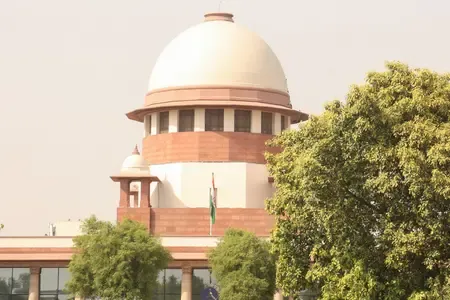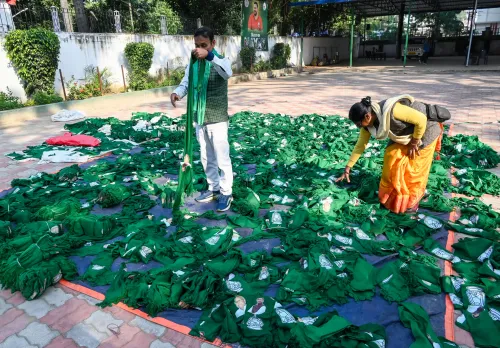Why Did the SC Criticize a Bengal Magistrate for Losing Jurisdiction?

Synopsis
Key Takeaways
- Supreme Court reprimands a Magistrate for losing jurisdiction.
- Timeliness in judicial proceedings is crucial for maintaining order.
- The importance of seeking extensions rather than claiming jurisdictional loss.
- Accountability within the judiciary is essential.
- The apex court emphasizes transparency and responsibility.
New Delhi, Sep 30 (NationPress) The Supreme Court has expressed disapproval regarding the actions of a Judicial Magistrate in West Bengal’s South 24 Parganas, who asserted that he had lost jurisdiction over a pending case after failing to adhere to the deadline set by the apex court.
A Bench comprising Justices Pankaj Mithal and Prasanna B. Varale remarked that the Judicial Magistrate of the 4th Court at Alipore, upon being unable to resolve the matter within the required timeline, issued an order on March 19, 2024, indicating that he no longer had jurisdiction.
The Justice Mithal-led Bench took a serious stance on this issue, stating, “We are distressed by the manner in which the order has been issued by the learned Judge. If, for any reason, the Judge could not resolve the matter within the specified timeframe set by this Court, the proper course of action would have been to request an extension rather than claim to have lost jurisdiction due to time elapsed.”
The apex court has instructed the concerned District Judge to seek clarification from the Magistrate and submit a report within a month.
“He must explain why and under what circumstances he has reported that he has lost jurisdiction over the matter and will not proceed further,” stated the SC order.
The apex court registry has also been directed to send a copy of the order to the appropriate authorities for necessary actions.
Senior advocate Rahul Kaushik, representing the petitioners, requested two weeks to submit a response and provide reasons for the delay.
A miscellaneous application was lodged following an earlier order from the top court on January 18, 2024, which mandated the Judicial Magistrate to resolve the case within six weeks.









